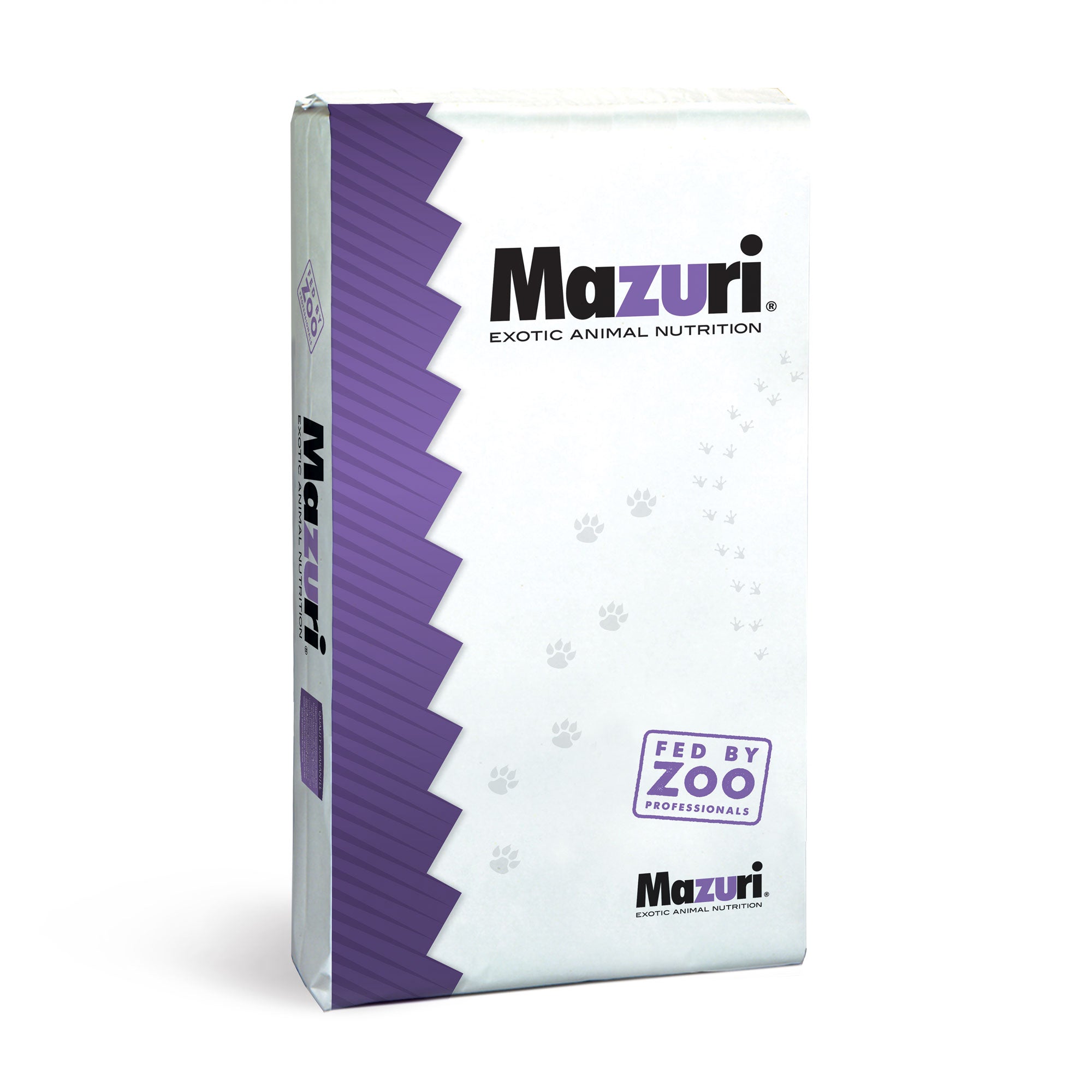Every exotic animal deserves the right nutrition
| Crude protein not less than Crude fat not less than Crude fiber not more than Ash not more than Calcium not less than Calcium not more than Phosphorus not less than Salt not less than Salt not more than | 21.50% 5.00% 5.00% 12.00% 2.25% 2.75% 1.20% 0.25% 0.75% |
Fish Meal, Ground Wheat, Wheat Middlings, Ground Corn, Dehydrated Alfalfa Meal, Porcine Meat and Bone Meal, Brewers Dried Yeast, Calcium Carbonate, Soybean Oil, Salt, Dicalcium Phosphate, Dried Whey, Glyceryl Monostearate, Magnesium Oxide, Pyridoxine Hydrochloride, Dried Lactobacillus acidophilus Fermentation Product, Dried Lactobacillus casei Fermentation Product, Dried Bifidobacterium thermophilum Fermentation Product, Choline Chloride, Menadione Sodium Bisulfite Complex (source of Vitamin K), Dried Enterococcus faecium Fermentation Product, Vitamin D3 Supplement, Vitamin A Acetate, d-Alpha tocopheryl acetate, Biotin, Preserved with Mixed Tocopherols, Manganous Oxide, Rosemary Extract, Calcium Pantothenate, Zinc Oxide, Citric Acid (a Preservative), Folic Acid, Thiamine Mononitrate, Nicotinic Acid, Copper Sulfate, Riboflavin Supplement, Vitamin B-12 Supplement, Calcium Iodate, Sodium Selenite.
- Feed free-choice on the surface of the water.
- If supplementation is desired, species-appropriate supplementation should be provided at no more than 20% of the total dietary intake, on an as is basis.
- Always provide plenty of fresh, clean water.
- Thoroughly wash feed and water bowls on a regular basis. It is always good practice to wash hands thoroughly after feeding and/or handling animals.
- This diet is not for human consumption.
Ask Our Experts
Get nutrition advice you can trust from experts who understand the unique nutritional needs and behaviors of your exotic animals.
Get Advice
